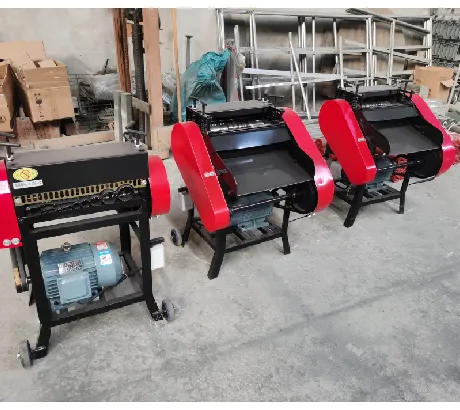

ጥቅም . 22, 2024 14:58 Back to list
The Future of Scrap Metal Recycling Plants An Eco-Friendly Approach
Scrap metal recycling plants play a pivotal role in our quest for sustainability and environmental conservation. As the global demand for metals continues to rise due to urban development and industrial growth, the importance of recycling these materials cannot be overstated. Recycling plants serve as essential facilities that process and handle discarded metals, transforming potential waste into valuable resources while significantly reducing the environmental impact.
One of the most compelling reasons for establishing scrap metal recycling plants is their ability to conserve natural resources. Mining new metals not only depletes finite resources but also requires extensive energy and water, often resulting in pollution and habitat destruction. In contrast, recycling scrap metal uses up to 95% less energy compared to extracting new metals from ore. This significant reduction in energy consumption translates into lower greenhouse gas emissions, making recycling a crucial part of combatting climate change.
The process of recycling begins with the collection of scrap metal, which can come from various sources, including automobiles, construction sites, manufacturing processes, and household appliances. Once collected, the scrap is transported to recycling plants, where it is sorted and processed. The sorting can involve various techniques, such as magnetic separation for ferrous metals and eddy current separation for non-ferrous metals. This ensures that different types of metals are correctly categorized, which is vital for achieving high-quality recycling outputs.
After sorting, the scrap metal undergoes further processing, which includes shredding, cleaning, and melting. These processes prepare the metal for remanufacturing. The melted metal is then poured into molds or cast into bales for easy transportation. The final product is raw material that can be sold to manufacturers for the production of new products, ranging from cars and appliances to construction materials and electronics.

Moreover, scrap metal recycling plants contribute to the economy. They create jobs, support local economies, and generate revenue through the sale of recycled metals. The recycling industry not only provides employment opportunities in recycling facilities but also in collection, processing, and transportation. In addition, the market for recycled metals often proves to be more stable than that for virgin materials, providing a layer of economic resilience in fluctuating market conditions.
As the world moves towards a more circular economy, scrap metal recycling plants are increasingly being viewed as critical to sustainable development. Governments and organizations worldwide are promoting policies and initiatives to support recycling efforts. Incentives, such as tax breaks and grants for recycling facilities, have emerged to encourage further investment in the industry.
However, challenges remain. Many regions still lack sufficient recycling infrastructure, which limits the economic viability of scrap metal recycling. Public awareness and participation in recycling programs also vary significantly. Educational campaigns aimed at informing citizens about the importance of recycling can foster greater community involvement and lead to increased collection rates of scrap metals.
In conclusion, scrap metal recycling plants are at the forefront of the sustainable movement, transforming discarded materials into valuable resources while protecting our planet. Their role in conserving natural resources, reducing energy consumption, and supporting economic growth is undeniable. With continued investment, technological advancements, and public engagement, these facilities can pave the way for a cleaner, more sustainable future, demonstrating the true potential of recycling in a modern economy. By embracing and expanding the capabilities of scrap metal recycling plants, we are not just recycling metals — we are recycling our future.
Latest news
Troubleshooting Common Eddy Separator Problems
NewsJul.04,2025
The Role of Metal Recycling Plants in Circular Economy
NewsJul.04,2025
The Impact of Recycling Line Pickers on Waste Management Costs
NewsJul.04,2025
Safety Features Every Metal Shredder Should Have
NewsJul.04,2025
How Industrial Shredders Improve Waste Management Systems
NewsJul.04,2025
How Cable Granulators Contribute to Sustainable Recycling
NewsJul.04,2025